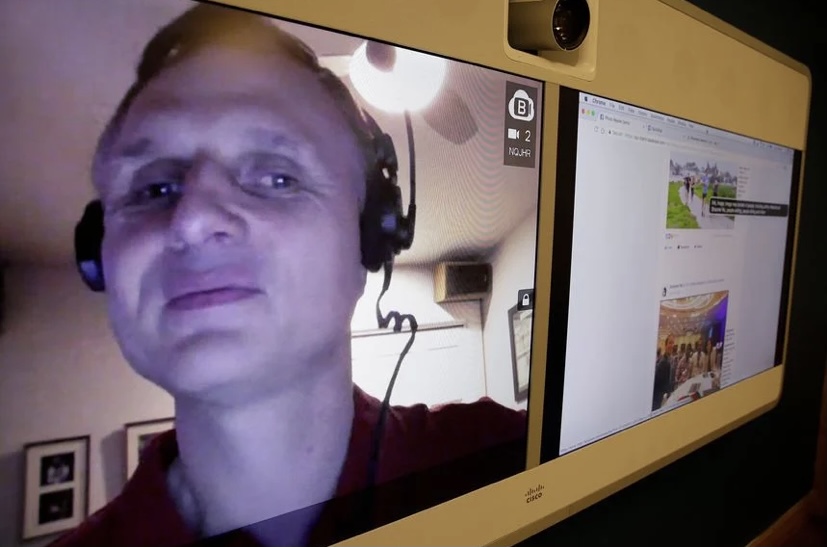03 November 2021
Social-media platform to delete data related to the faces of more than one billion people

PHOTO: ERIC RISBERG/ASSOCIATED PRESS
Facebook said it is shutting down its facial-recognition system in the coming weeks, scrapping a feature that has developed into a key tool for sharing photos on social media but has raised concerns among privacy advocates and regulators
The move continues a dramatic reshaping of the tech giant in recent weeks, which includes pausing the development of an Instagram for children product and a rebranding of the entire company to Meta Platforms Inc. to focus on a future beyond social media.
People who have opted into facial-recognition service will no longer be automatically recognized in video and photo content, according to Jerome Pesenti, vice president of artificial intelligence at Meta, formerly Facebook Inc. He said the social-media platform would also delete data related to the faces of more than one billion people.
“We need to weigh the positive use cases for facial recognition against growing societal concerns, especially as regulators have yet to provide clear rules,” he said in a post on Meta’s website.
The company has long touted the convenience facial recognition delivers for users and has pushed back against privacy advocates who find the technology invasive. Tuesday’s move also could have implications for the so-called metaverse, which is a series of virtual online communities that Meta Chief Executive Mark Zuckerberg touted last week as the future of the internet and his company.
Those communities are powered by virtual reality and other advanced technologies, as well as data about users.
In its blog post, the company called Tuesday’s decision “one of the largest shifts in facial-recognition usage in the technology’s history.”
More than a third of the social-platform’s daily active users are currently opted into the setting, Facebook said.
Facebook last year reached a $550 million settlement with the state of Illinois, which alleged the company was wrongfully using facial-recognition technology on residents without their consent. Facebook didn’t admit to wrongdoing.
The company’s use of facial-recognition was also cited by the Federal Trade Commission in its $5 billion settlement in 2019 with Facebook related to its privacy practices.
With the change, Facebook’s technology will no longer automatically recognize if someone’s face pops up in videos, photos or Facebook memories. Users also won’t see a suggested tag in videos or photos they may be featured in.
The company said it would continue to pursue ways to use facial-recognition as a tool for users to verify their identities.
The pivot comes as the company has been under substantial fire for its practices. A recent Wall Street Journal investigation showed the social-media company knew its platforms were riddled with flaws that cause harm. The Journal’s reporting also found that the company didn’t fix those flaws.
The company’s executives have been called to testify before Congress on multiple occasions in recent months, and lawmakers have said they are pursuing a number of regulatory changes in response to the revelations.
Mr. Zuckerberg has said the criticism paints a false picture of the company he co-founded.
Ken Bamberger, a law professor specializing in privacy at University of California, Berkeley, called the company’s announcement on Tuesday “jaw-dropping.”
“Facebook’s size makes this move particularly significant,” he said. “So far much of the traction in limiting the use of facial-recognition software has come rightfully because of the immediate concerns about use by government and law enforcement.”
Facial recognition, outside of Facebook, has become a popular way for some people to access things like their smartphones. Many of the biggest tech companies have grappled with its use by law enforcement and the potential for bias in how the technology is applied. Amazon.com Inc. andMicrosoft Corp. said last year they wouldn’t allow police to use their facial-recognition tools—and joined other companies in calling for clearer rulesaround the surveillance technology.
The challenge with facial recognition is that once a person’s biometrics are in a database, it is very tough to control how they will be used, said Alessandro Acquisti, a professor of information technology and public policy at Carnegie Mellon University.
“Once your data is collected, you as the data subject effectively lose the ability to control its usage,” said Mr. Acquisti, who was surprised by Facebook’s move.
Facebook’s shift away from using its facial-recognition system will also affect a technology called automatic alt text, which is used for making image descriptions for the visually impaired, Mr. Pesenti said. That technology won’t try to identify each person featured in a photo using facial recognition anymore, but it will still be able to determine the number of people in a photo, he said.
“Every new technology brings with it potential for both benefit and concern, and we want to find the right balance,” Mr. Pesenti said in his post Tuesday. “In the case of facial recognition, its long-term role in society needs to be debated in the open, and among those who will be most impacted by it.”
Wall Street Journal
